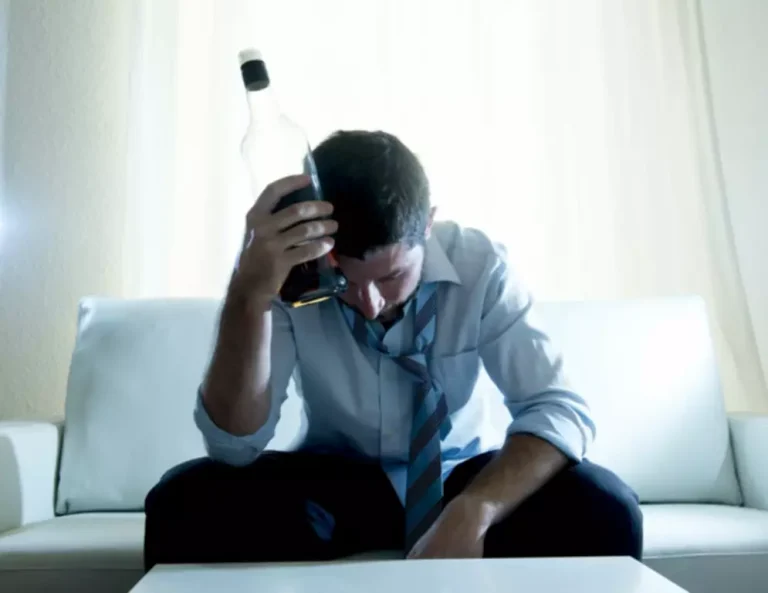
Relapse prevention group activities connect you with others with whom you can share your goals. Members of the group can become your support system, keep you accountable, and help you stay on track in achieving your goals. You also get a chance to share your struggles, and benefit from encouragement and constructive feedback from group members and mental health professionals leading the group.

Emotional Relapse
Here are ten effective group activities designed to enhance relapse prevention efforts. Role-playing scenarios allow individuals to practice real-life situations in a safe setting. This activity helps participants develop effective coping strategies and improve their communication skills.
Essential Life Skills for Addiction Recovery
- They provide a unique combination of support, learning, and motivation that can significantly enhance your chances of long-term sobriety.
- In addition to these common signs, patients may have their own unique indicators as well that signal they are drifting away from recovery.
- A relapse prevention plan (RPP) is an individualized recovery plan that helps people recognize and minimize the triggers, boost their coping skills, and finally, help recovery sustainability.
- It often involves family therapy, group therapy, and individual counseling to help look at the recovery journey from every possible angle.
There are many triggers that present a risk of relapse, like socializing with friends you used to use with or a partner from a toxic relationship. This article provides an overview of relapse, how relapse prevention worksheets can assist clients, and tips to prevent returning to use. It also includes a free relapse prevention plan worksheet to save to your electronic health record (EHR) and use in your practice.
Goal-Setting And Achievement Challenges

They provide a unique combination of support, learning, and motivation that can significantly enhance Sobriety your chances of long-term sobriety. Although he started going to therapy sessions, Jack felt increasingly isolated, which intensified his cravings. Seeking a different approach, he joined a relapse prevention group to ensure he would not go back to using drugs.
- Emotional relapse relates to the thoughts and behaviors that may make a client vulnerable to relapse.
- Relapse refers to the return of addictive behaviors after a period of abstinence, often accompanied by feelings of guilt and frustration.
- A vital aspect of overcoming substance abuse is preventing relapse and staying sober long-term.
- When applying the Gorski method, individuals are encouraged to tailor each of the nine stages to their unique circumstances.
Remember the embarrassing things you may have done or the people you may have hurt. Doing so will help you quickly identify and deal with them before they become too overwhelming. Write down a schedule of your favorite support groups and attend a meeting for additional guidance. Commit to talking with one or more of the support group members regularly. You can also reach out to them whenever you experience triggers or cravings. This final stage is when a person actively engages in substance use again.
How to Find the Right Sober Living Home for Your Needs

Cultivate relationships with individuals who offer encouragement and resilience. A strong support system provides emotional backing and helps maintain accountability during challenging times. Family involvement is particularly effective in creating a supportive environment. Engaging family members in recovery processes can increase accountability and nurture positive communication patterns.
- At Discover Recovery, we work with a wide variety of health insurance providers so those in need can get access to the treatment they need.
- Events, specific people (such as friends who are also using), and certain places can put you at a higher risk of relapsing.
- Stress can be a significant trigger for relapse, which is why managing it is a critical part of addiction recovery.
- Vision board sessions are effective relapse prevention group activities because they help you articulate your goals and plans.
- Relapse prevention is one of the main goals of drug or alcohol treatment programs.
- CBT exercises help individuals identify and challenge negative thought patterns that contribute to substance use.
- This therapy educates families about addiction, fostering empathy and understanding, which are key to individual and familial recovery.

Group goal-setting helps people in recovery set and pursue meaningful objectives together. By breaking down larger goals into manageable steps according to participants’ capabilities, the group gains a sense of accomplishment and enhanced self-esteem. Engaging in healthy, active pursuits provides an effective way to manage stress, one of the most common relapse triggers. Suggest connecting with mental health professionals and structured treatment programs for intensive support. Offer assistance in finding resources or accompanying them to appointments, reinforcing the importance of expert guidance in recovery. Accepting it as a part of the process rather than a failure, can be empowering.
By understanding the essential components, stages, and relapse prevention skills strategies involved, individuals can effectively navigate the complexities of their recovery journey. This proactive approach not only aids in preventing relapse but also empowers individuals by promoting self-awareness, accountability, and long-term stability in sobriety. Stress management and coping skills are the foundation of relapse prevention plans. Recovery group activities can equip you with techniques and skills to handle stress, which is a known trigger for drug and alcohol abuse.